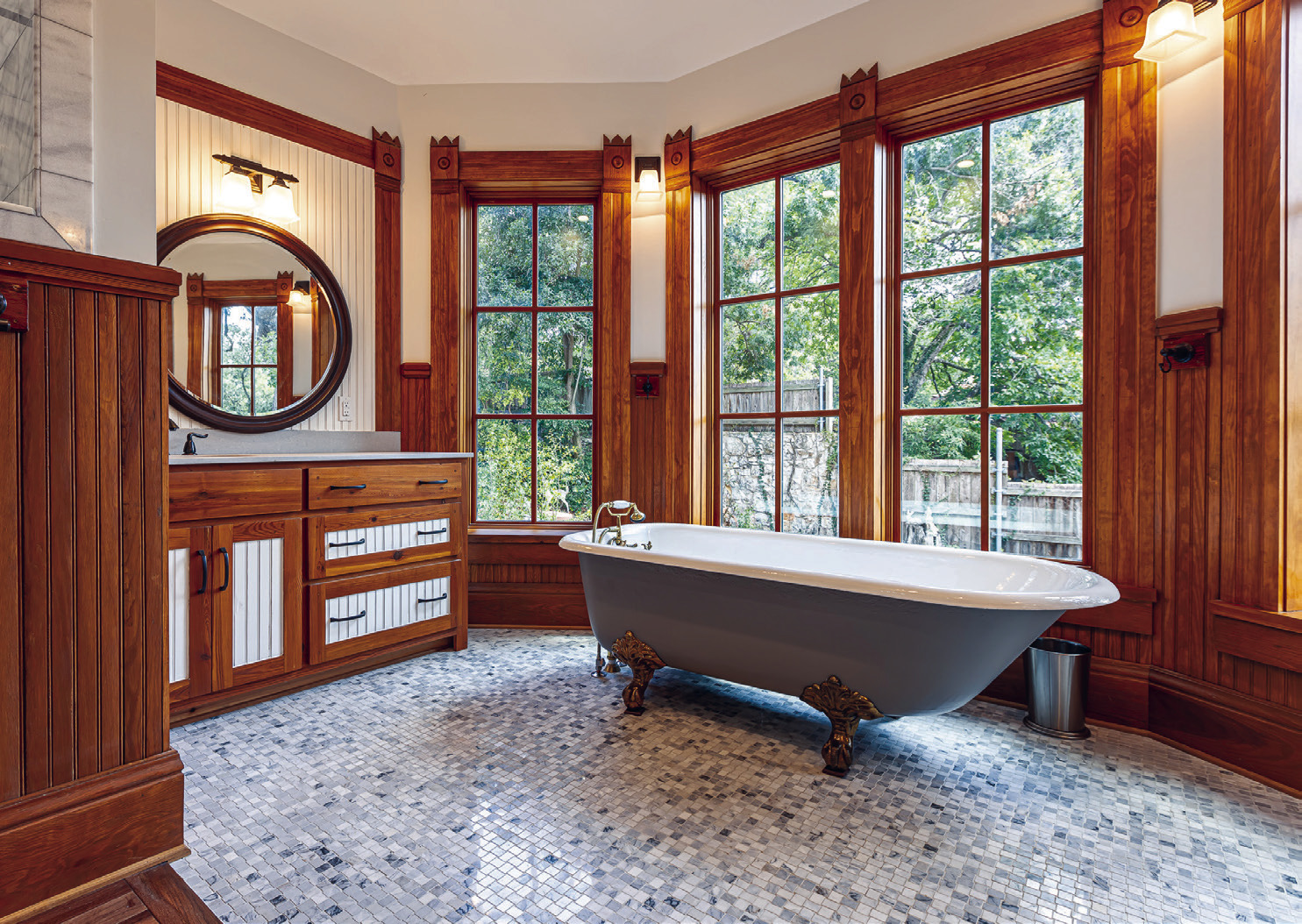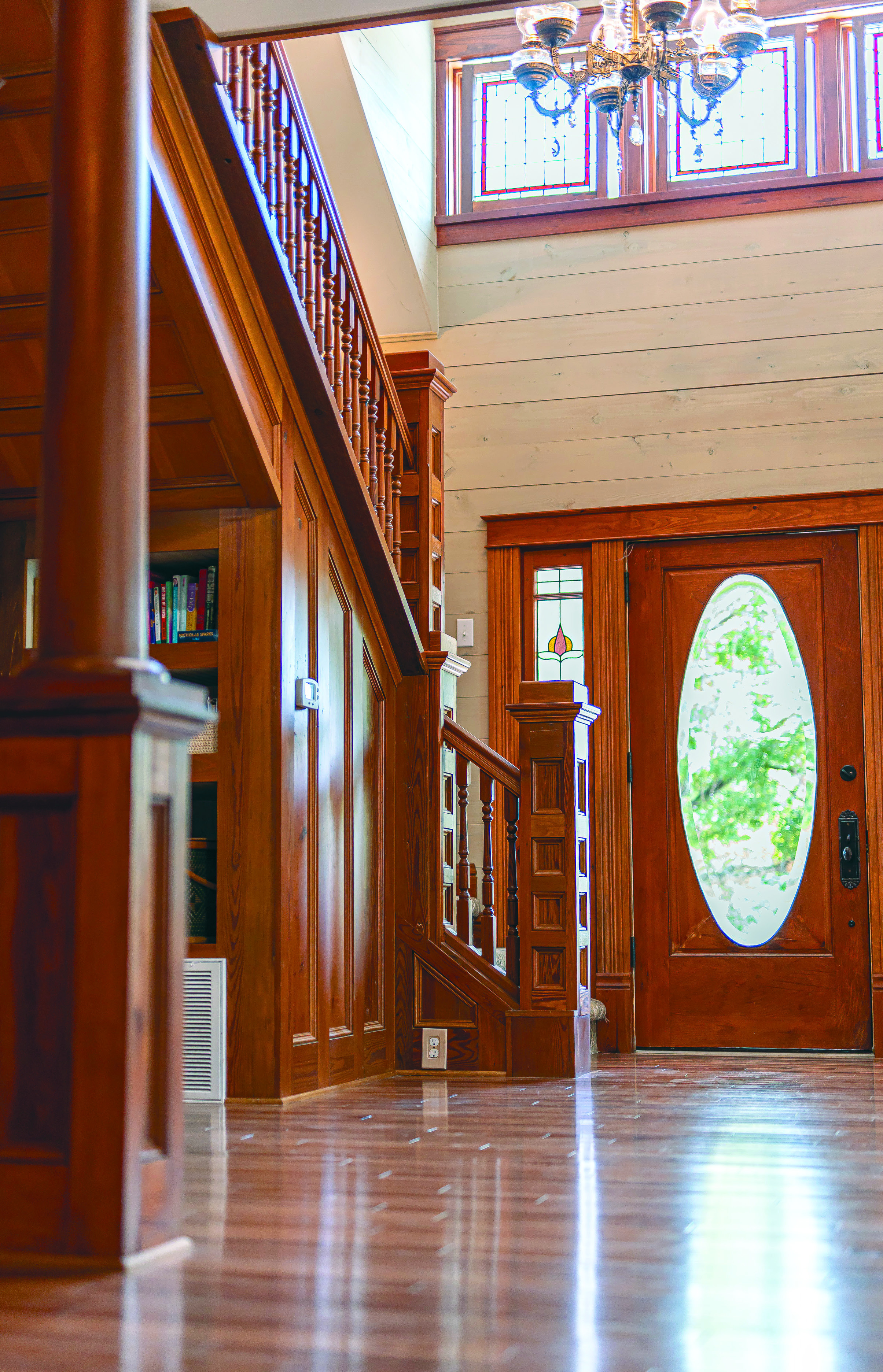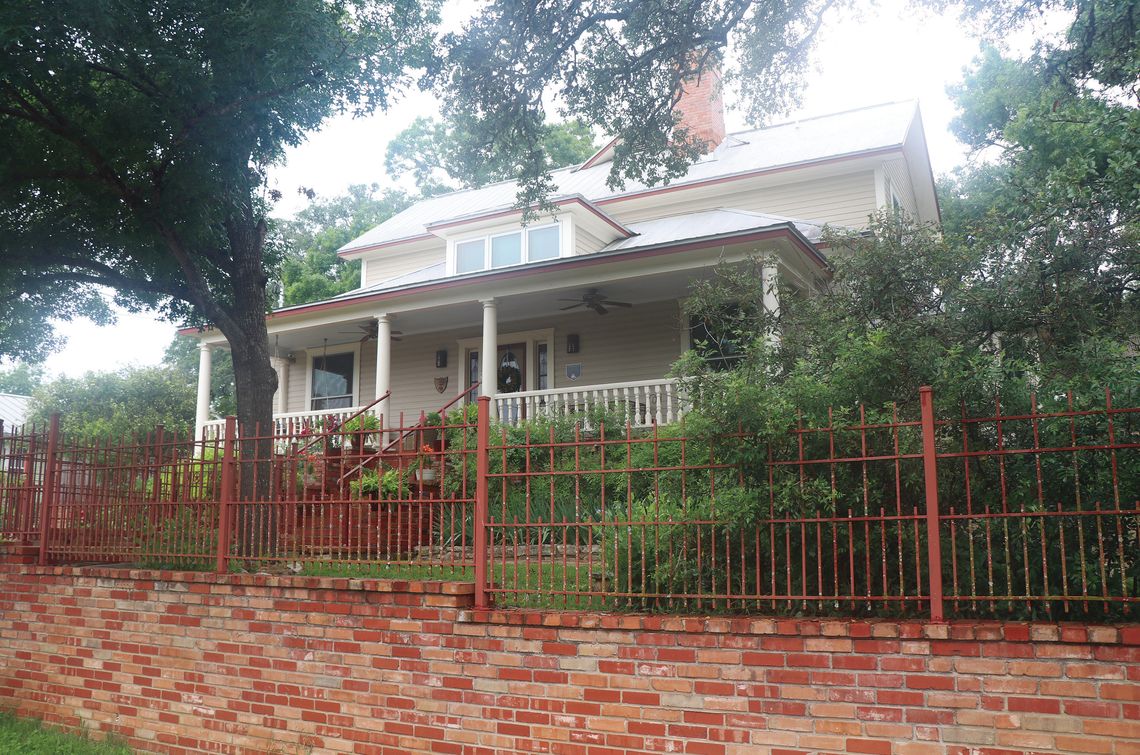Bungalows & Buggy Trails
Rash House has lived many storied lives since it was first built on Viola Street in 1902
s with most historic houses, this beautiful hillside Victorian Texas/Craftsman bungalow has had nine colorful lives.
Built in 1902 on twisting old buggy- trail Viola Street, the six-room, one-story, 1200-square foot house was the longtime home of George and Ola Smith. They were descendants of the Kone and Pitts families, very early San Marcos residents who were among the South Carolineans recruited in the 1840s to join a Texas-bound caravan led by John Drayton Pitts. The 11 caravan families eventually settled along the Old San Antonio (today’s Hunter) Road, forming a sprawling farming community that they called Stringtown.
They all prospered, to the point that after the Civil War, many Stringtown residents also built large homes in town so that their many children could attend the new Coronal Institute. Ola Reid Kone and George Burton Smith thus
Marianne Moore with Rodney van O uderkerke heritage association of san marcos grew up in this historic hillside area, and after marrying in 1909, moved into 714 Viola, next door to Ola’s brother Lewis Kone and his family at 704 Viola.

This lavish guest bath was added during the 2000 remodel of the Viola Street bungalow. Photo submitted by the Heritage Association of San Marcos
The Smiths raised their family in the house and George lived there for many years afterward as a widower. When he died, after nearly a decade of disrepair, the house was eventually condemned. It was gutted and slated for demolition.
Seeing its potential, Tony and Kerry Rash purchased the property in 1981 and began its restoration. Tony is a skilled builder and craftsman adept at using salvaged materials to create his visions.
The plan was to restore and resell, but the Rashes fell in love with the house and then discovered they needed a bigger house for their newest project — a baby girl. Together the couple collaborated to restore the house to its next life as their family home.
The original cap-and-crown moldings were hand-planed by Tony and replaced. They finished the attic, adding three dormers to create two bedrooms, a bathroom and a studio. In 2000, they decided to turn the attic into a full-fledged second story to create a living space for their baby girl, now a growing-up child named Anna Lee. Indeed, Kerry says that if walls could talk, they would surely share the sounds of Anna Lee’s giggling cheerleader friends and the smell of their hairspray.
That same remodeling project included the addition of a great room, 2-car garage and apartment. And with those additions, the house grew to over 4000 square feet.
Perhaps the most creative reuse was that of a massive neon blue waterbed frame, which horrified his wife when Tony initially brought it home. But it turned out that the frame had originally been constructed from a staircase, right down to its huge newel posts, so he repurposed the piece to become a grand period staircase once again. Other salvaged materials used throughout the house are stained glass, chandeliers and bricks. Also added was a breakfast room, bathroom, retro- fitted coal-burning fireplaces to wood-burning and then eventually natural gas and coffered ceilings. A barn and casita out back were built solely out of salvaged materials. The brick walkway leading up to the front door and also comprising the back patio was built from bricks that Tony salvaged from the demolished Stonewall County Courthouse in his home town of Aspermont, Texas.
After becoming empty-nesters, the Rashes operated the popular Anna Lee’s Viola Street Inn Bed and Breakfast from 2009 through 2015. Unfortunately in 2015, a fire occurred which burned much of the front of the building. Tony once again restored the house but the couple elected not to reopen the inn. Needing to downsize, the Rashes now have their magnificent historic home on the market, awaiting its next life.
Heritage Home Tour 2024 will occur May 4 - 5, from 11 a.m. - 4 p.m. Advance tickets are $25, available at the Chamber of Commerce, or online at www.heritagesanmarcos. org. The self-guided tour begins at the newly-renovated Charles S. Cock House-Museum, 400 E. Hopkins, where tickets will be exchanged for wristbands and tour materials. Breakfast pastries, gourmet coffee and an old-fashioned bake sale will start the tour. Tickets at the door are $30; children and docents half-price.

This light-filled entryway was salvaged after a fire, utilizing a repurposed waterbed frame to rebuild the staircase and newel post. Photo submitted by Heritage Association of San Marcos









